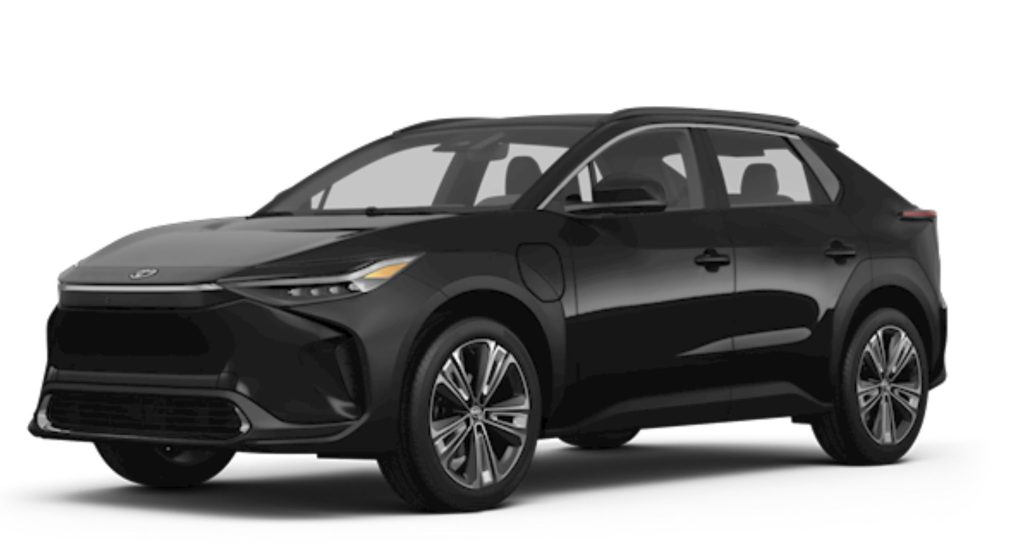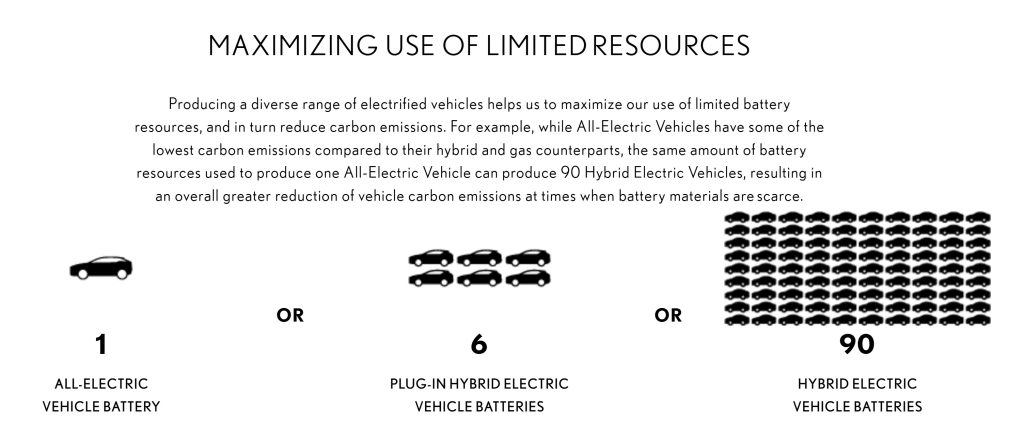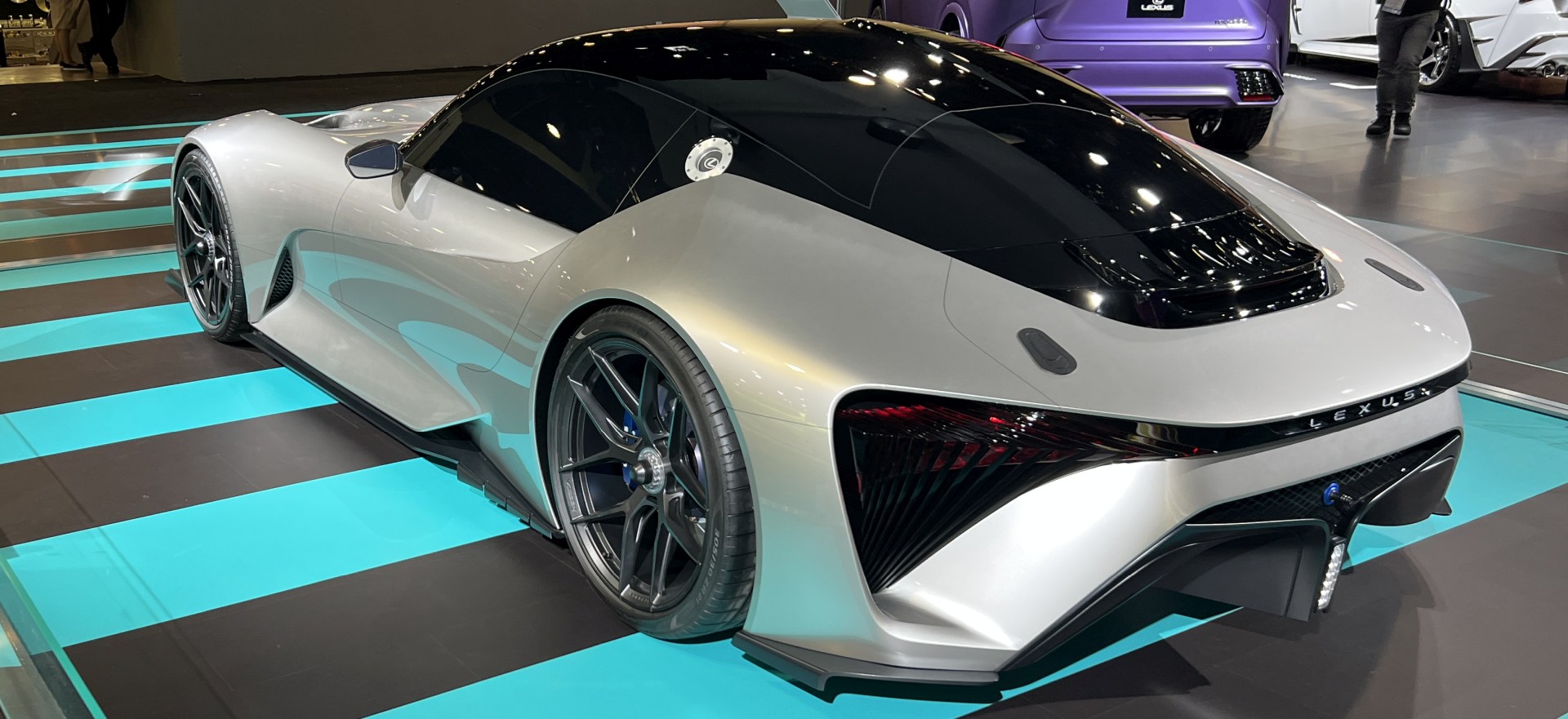With Berkeley’s recent disillusionment with Tesla, we’re getting a lot of calls from people looking to buy an electric vehicle (EV) and wondering which EV vehicles we service. In 2025 there are EV offerings from Toyota, Subaru, and Honda. We work on all three makes, but we only service EVs from two of the manufacturers. This article will cover which EVs we repair and which we won’t.
The EV We Don’t Service
I’ll start with the EV that we don’t work on: the Honda Prologue. This has surprised a lot of our customers, since we’re fully equipped to do all types of service and repairs to Honda vehicles. We subscribe to Honda service information, own the Honda factory scan tool, perform Honda ADAS calibration, offer locksmithing services, and have many Honda special tools.
Then don’t we work on the Prologue? The problem is that the prologue is not a Honda; it’s a GM – the Chevrolet Blazer EV to be exact. The Honda scan tool will not work with the Prologue. Honda Service information does not cover any of the Prologue service.

The Toyota bZ4X
Toyota is our favorite brand. They have the best hybrid design and we know this brand better than any other. Are we bZ4X experts? Well, we’re probably as close as you can get without having ever seen the car. 🙂
But seriously, Toyota hybrids are our specialty. A Toyota EV is like an extra simple Toyota hybrid (with the possible exception of the heating and cooling systems which can get pretty complex on EVs).
We’re certain we’ll be able to service the bZ4X effectively. We have 3 Techstream scan tools and subscribe to Toyota service information. It’ll be a walk in the park.

The Subaru Solterra
We’ll also work on the Subaru Solterra. We’re fully equipped for Subaru service and no stranger to EVs, but there’s another reason for our willingness. If you take a look at the picture of the bZ4X and the Solterra, you may notice some similarities. They’re pretty much the same car.
We have the Subaru scan tool, but I’m guessing that the Solterra will work with the Toyota scan tool, which comes bundled with the Subaru Select Monitor 4 (SSM4) for use with other Toyota/Subaru collaborations. Regardless, we’ll have the tools we need to service the Solara EV.

The Lexus RZ Electric
Is it my imagination or does this car look a lot like the Solterra and bZ4X? Nope, it’s not my imagination. All three vehicles use the e-TNGA (Toyota New Global Architecture for electric vehicles) platform, which is a dedicated battery electric vehicle architecture developed by Toyota and shared with its partners.
We’ll be able to use the Techstream to service this EV as well, so if you buy one, we’ll fix it. I’d go for the Toyota personally, but if you have money to burn and are willing to pay more for parts and to fix doodads and gizmos when they break, you can get the Lexus.

Consider Buying a Plug-In Hybrid Instead
Toyota has resisted making full EVs for quite some time. They have correctly stated that hybrids are a better option, and stubbornly refused to offer an EV, but people seem to want to buy EVs and they have now caved. If you’re on the fence, let me try to talk you out of an EV.
Why Not Buy an EV?
Environmental Impact
What? EVs are super green, right? Lexus makes the case that producing EVs is poor use of limited resources. I’ll add to that the EVs are more disposable than hybrids or conventional gasoline cars. When a hybrid battery fails, It’s relatively inexpensive to replace the Hybrid battery and the majority of Hybrid owners will replace the Hybrid battery when it fails after 10 to 15 years.
An EV on the other hand, has a very large and very costly battery, since it is many times the size of a hybrid battery. I suspect (and have heard so anecdotal reports of) The cost of the battery being far higher than the value of the car, and the car and the electric car being scrapped as a result.

Range
There are two issues with range. The first is that long trips can be an annoyance with an electric vehicle. Many people will plan out a route where they can stop at a fast charger mid Journey, planning to have lunch while they wait for the car to charge and 45 minutes for an hour. The problem is that when they get to the fast charging station, many other people have made a plan very similar to theirs and there’s a long line to charge the vehicle.
The other issue with range is battery deterioration. It’s normal for batteries to lose capacity over time, just like your cell phone doesn’t hold a charge for as long once it gets older, and EVs range will decrease as the battery capacity decreases. We used to see this with a Nissan LEAF frequently. The original range of 90 miles would slowly decrease to the point or the owner would only have 30 miles of range after a full charge.
Resale Value
EVs drop in value fast. Since the bulk of the EV cost is the battery, and the battery is a consumable with a limited life, EV values drop much faster than hybrids or conventional cars. We’ve seen this with the LEAF, which drops 66% in value after 5 years compared to a Prius which drops 31% in value over 5 years.
Heating and Cooling System Complexity
This may just be a fear of mine, because it’s too early to say how reliable these complex climate control systems will be, but for an EV having a working heater and AC is mandatory. Not for the driver. Sweat or freeze; no problem. But you’ll need to control the battery temperature, so if the AC breaks, the whole car breaks.
These systems usually have many ways to regulate the temperature, a heat pump, heat capture systems, all sorts of heat exchangers. Lots of valving, servos, sensors, control systems, and wiring all deeply buried. One of the guys I follow on YouTube (Tom Lech) does a lot of AC repair on new cars in body shops made the comment that EV air conditioning repairs may be something that totals cars in the future.
Consider a Plug In Hybrid
In my view of a plug-in hybrid is a good compromise. It has some of the issues of the EVs. For instance, when compared to a standard hybrid they cost more and the batteries are more expensive, but not as expensive as an EV. And a plug in hybrid offers some of the benefits of an EV. Some people are able to complete their daily commute without ever using the gas motor. I’ve seen many plug-ins with 199 MPG on the lifetime display (the maximum value that can be displayed).
